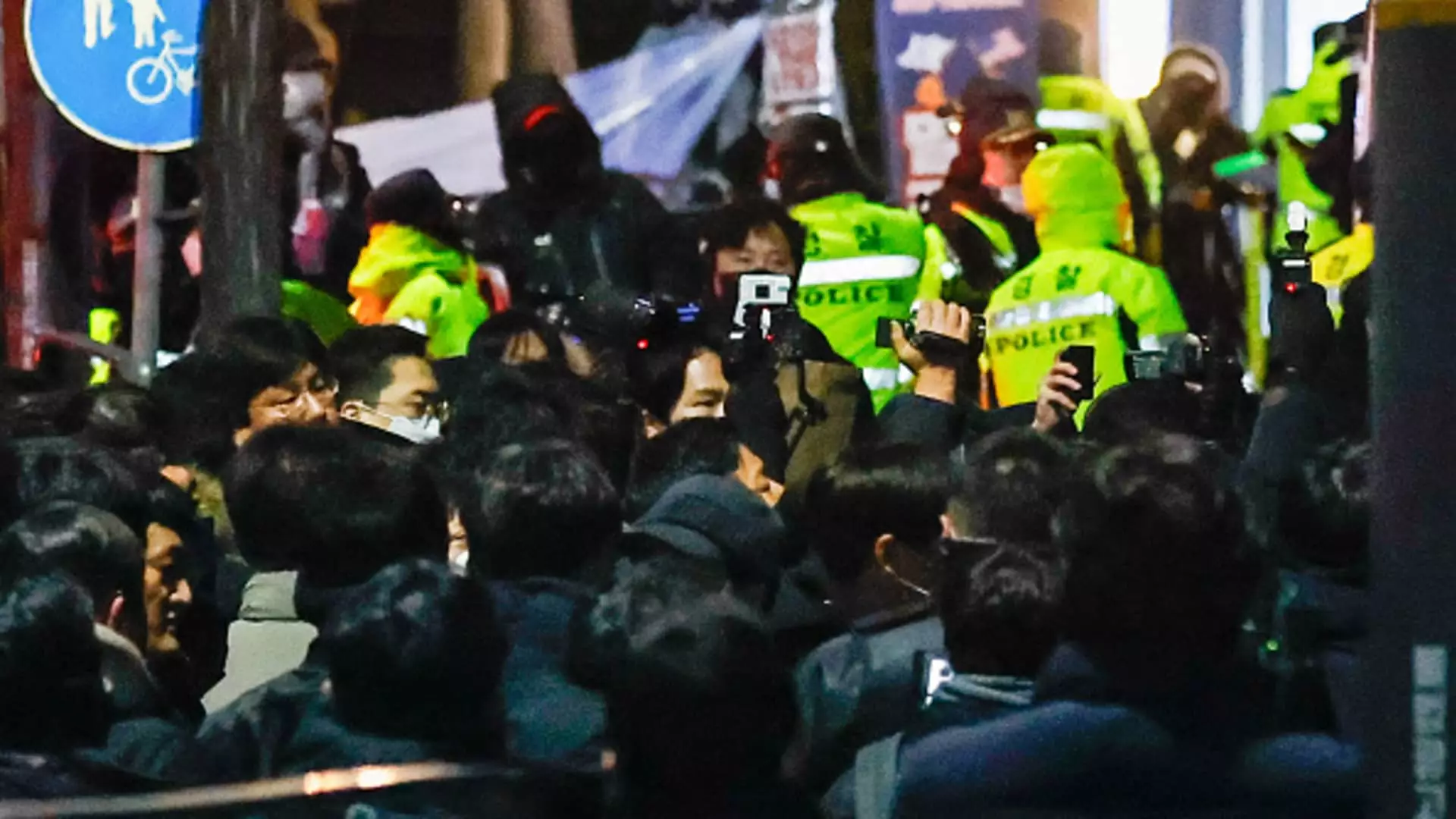In a groundbreaking moment for South Korea, President Yoon Suk Yeol has been arrested, marking the first instance in which a sitting president of the nation has faced such charges. This unprecedented event follows a series of dramatic political turmoil, including a failed arrest attempt earlier this month that highlighted the contentious political climate and challenges surrounding presidential immunity. The arrest was executed by the Corruption Investigation Office for High-Ranking Officials (CIO), emphasizing the severity of the allegations against Yoon.
The intricate web of Yoon’s legal troubles began when investigators sought to question him but were met with resistance from the Presidential Security Service, which blocked their entry at his residence on January 3. This initial attempt to detain the president set the stage for a more forceful second try, involving about 3,000 police officers coordinated by the CIO. The scale of the operation not only underscores the gravity of the accusations but also represents a stark escalation in tensions within South Korea’s political landscape.
Yoon faces grave charges, including allegations of insurrection stemming from his controversial declaration of martial law made late last year. This declaration, aimed at countering perceived threats from North Korean forces, was met with widespread backlash, including immediate intervention from lawmakers who swiftly moved to vote down the declaration in Parliament. It is significant to note that these insurrection charges bypass the protective shield of presidential immunity, marking a turning point in how accountability is enforced against leaders in South Korea.
As Yoon navigates this legal crisis, the economic implications are also unfolding. The immediate reactions in the stock market were relatively muted, with slight fluctuations in the Kospi and Kosdaq indices and a minor depreciation of the South Korean won against the U.S. dollar. Such market responses indicate a divided sentiment among investors, reflecting both concern for political instability and cautious optimism regarding future developments.
Martial law has not been declared in South Korea for over four decades, making Yoon’s actions particularly shocking. The move was perceived by many as an affront to democratic principles and has led to significant public outrage, culminating in the president’s impeachment on December 14. The Constitutional Court’s involvement only adds another layer of complexity to this already fraught narrative, as it prepares to hear the impeachment trial while Yoon has opted not to attend.
The arrest of President Yoon Suk Yeol serves as a crucial test of South Korea’s democratic frameworks, underscoring the urgent need for accountability at the highest levels of power. As the nation grapples with the fallout of this unprecedented event, it raises profound questions about the balance of power, the enforcement of the law, and the future trajectory of South Korea’s political environment. The coming weeks will be pivotal in determining not only Yoon’s fate but also the integrity of South Korea’s democratic systems as they confront a challenge unlike any in recent history.


Leave a Reply